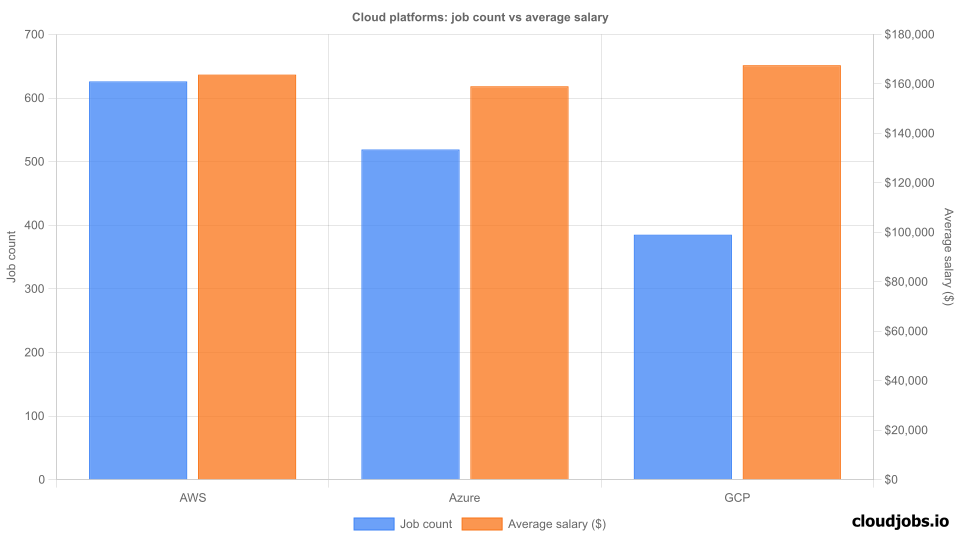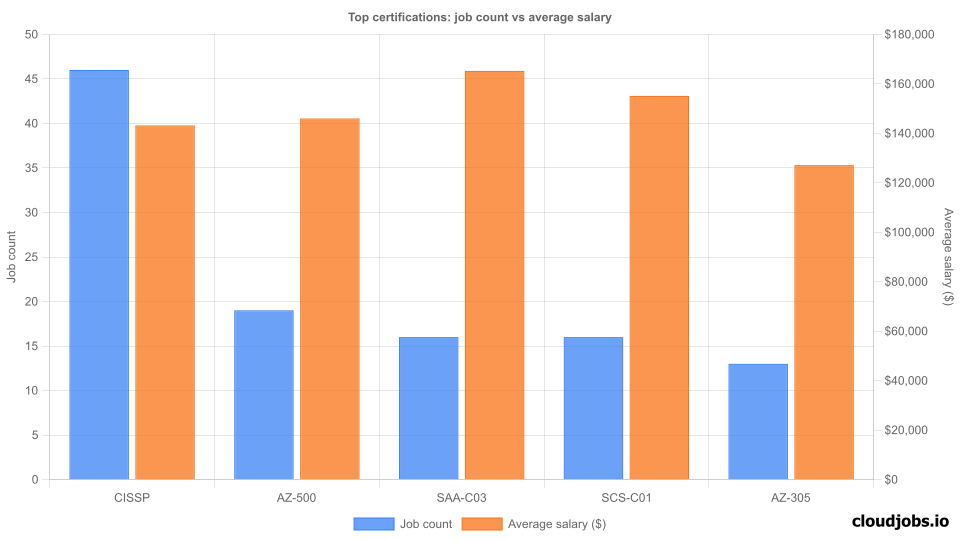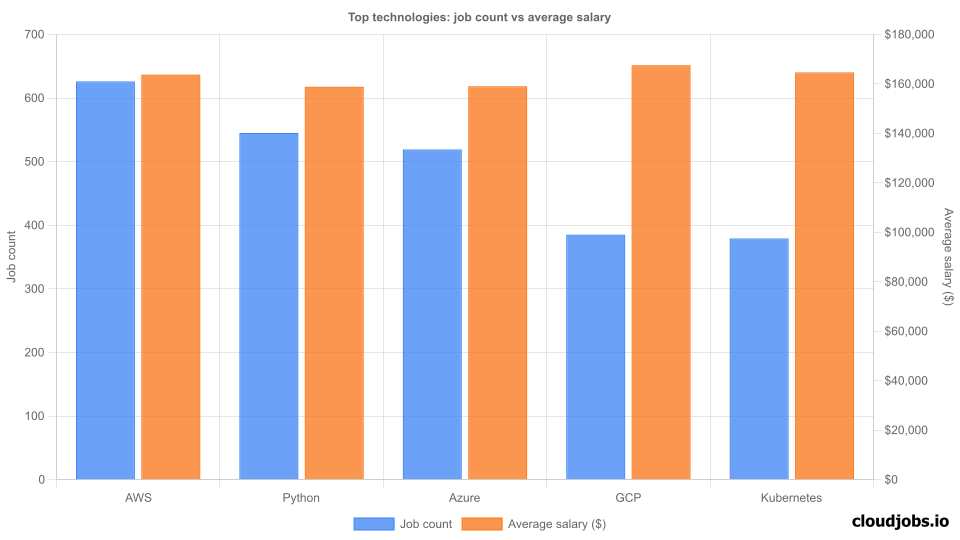September 28: Cloud Job Market Snapshot
September 28, 2025
Security tops the week with 75 postings at $156,949 average pay.
Multi-Cloud Market Briefing: Week of September 28
Executive Summary
In the week of September 28, 2025, the cloud job market saw a significant focus on security roles, which led the sector with 75 postings and an average salary of $156,949. Following closely were cloud and DevOps roles, with 58 and 56 postings respectively, highlighting a robust demand for skilled professionals across multiple cloud platforms.
Multi-Cloud Snapshot
The visualization of job counts and average salaries across major cloud platforms reveals a competitive landscape. AWS leads with 626 job postings and an average salary of $163,718, followed by Azure with 519 postings at an average of $158,992. GCP, while having fewer job postings at 385, offers a higher average salary of $167,526, indicating a premium for GCP skills in the market. Oracle Cloud, although not detailed in the current data, typically lags behind these three giants.
This data suggests a trend where AWS remains the dominant player in terms of job volume, but GCP is emerging as a strong contender in terms of salary, reflecting a potential shift in demand towards specialized GCP roles. The overall interquartile salary spread averages $70,906 across focus platforms, indicating a healthy salary range that professionals can expect based on their skills and certifications.
 job count and average salary for major cloud platforms
job count and average salary for major cloud platforms
Top Certifications Analysis
The analysis of top certifications shows that the CISSP - Certified Information Systems Security Professional leads with 46 job postings and an average salary of $143,169, making it a highly sought-after credential in the security domain. The SAA-C03 - AWS Certified Solutions Architect - Associate follows closely with 16 postings and a higher average salary of $165,224, indicating its value in the AWS ecosystem.
Other notable certifications include the AZ-500 - Microsoft Certified: Azure Security Engineer Associate with 19 postings at an average salary of $145,981, and the SCS-C02 - AWS Certified Security - Specialty, which also commands a strong salary of $155,131. This data underscores the importance of security certifications in enhancing earning potential and job prospects in the cloud job market.
 top certifications by job count with salary overlay
top certifications by job count with salary overlay
Technology Demand Analysis
The visualization of top technologies highlights the demand for skills in AWS, Azure, and GCP, with AWS leading in job count (626) and average salary ($163,718). Azure follows with 519 jobs and an average salary of $158,992, while GCP, despite having fewer postings (385), offers a competitive average salary of $167,526.
Emerging trends indicate a growing demand for Kubernetes and Terraform, both of which are essential for cloud infrastructure management. The average salaries for these technologies are also noteworthy, with Kubernetes jobs averaging $164,623 and Terraform roles at $148,526. This suggests a skill gap in these areas, presenting opportunities for professionals to upskill and meet market demands.
 top technologies by job count with salary overlay
top technologies by job count with salary overlay
Market Outlook
The findings from this week’s analysis indicate a strong demand for cloud professionals, particularly in security and infrastructure roles. The average salaries across platforms and certifications suggest that professionals with specialized skills, particularly in security and cloud architecture, can command higher salaries.
To capitalize on these trends, cloud professionals should consider pursuing certifications such as CISSP, SAA-C03, and AZ-500, which not only enhance their employability but also significantly increase their earning potential. Additionally, focusing on emerging technologies like Kubernetes and Terraform will position professionals favorably in a competitive job market.
For those looking to navigate their career paths effectively, subscribing to the CloudJobs newsletter will provide ongoing insights and updates on market trends, job postings, and salary benchmarks.